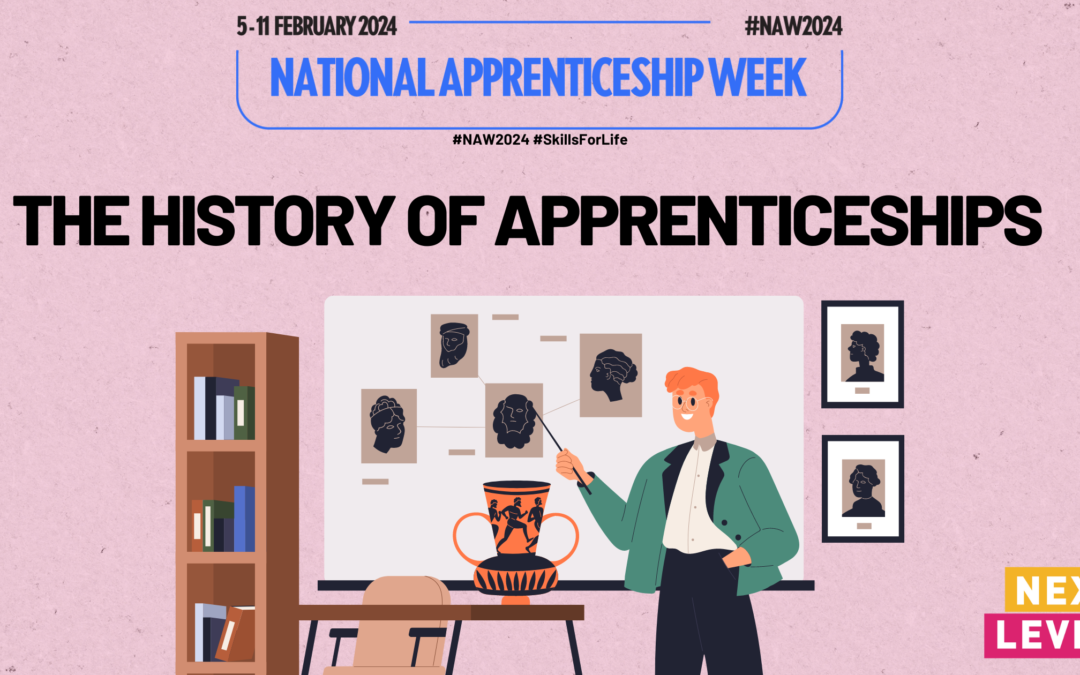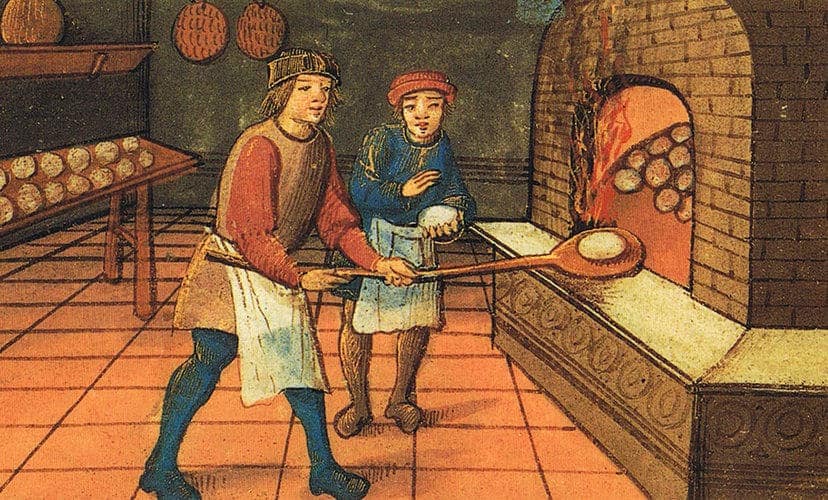A Timeless Tradition: Apprenticeships in England
Imagine yourself transported back to the bustling workshops of 12th-century England. Young apprentices, covered in soot and sawdust, learn the secrets of their craft from seasoned masters. Fast forward to today, where tech whizzes hone their skills alongside industry experts. While centuries apart, these scenes share a common thread: apprenticeships are a timeless tradition, shaping England’s skilled workforce.
This National Apprenticeship Week, let’s embark on a historical journey to explore the fascinating evolution of apprenticeships in England. Buckle up, for it’s a tale filled with guilds, industrial booms, and modern transformations!
Guild Halls and the Birth of Apprenticeships
Our journey begins in the 12th century, where craft guilds reigned supreme. These associations of skilled artisans established the first formal apprenticeship system. Youngsters learned trades like blacksmithing, carpentry, and tailoring in exchange for lodging and board. Strict regulations ensured quality and commitment, with masters limited in the number of apprentices they could take.
The Statute of Artificers in 1563 marked a turning point, introducing the first national apprenticeship system, formalising regulations across the land. This paved the way for further expansion during the Industrial Revolution. New industries like textiles and engineering craved skilled workers, and apprenticeships boomed. However, the 19th century brought challenges. Harsh factory conditions and concerns about exploitation led to a decline in popularity.

Image Courtesy of the National Archives and Records Administration.
Rebuilding and Resurgence
Despite facing challenges, apprenticeships remained crucial in rebuilding the nation’s workforce after both World Wars. The mid-20th century saw a resurgence, with nearly a third of young men entering this pathway by the 1960s. While data on female participation during this period is limited, historical accounts suggest a gradual increase fueled by the Women’s Liberation Movement and government initiatives promoting equal opportunities. While traditional societal expectations often directed women towards domestic work or specific sectors like textiles, the landscape was slowly shifting. This highlights the evolving nature of apprenticeships, even amidst post-war challenges, ultimately paving the way for the modernisation wave that would follow.
Modernisation and Beyond
The late 20th and 21st centuries ushered in a wave of change for apprenticeships. Modern Apprenticeships gave way to apprenticeship frameworks, expanding programmes across diverse sectors like business, marketing, and IT. These frameworks, revamped in 2017 to apprenticeship standards, emphasised flexibility, offering higher levels (up to degree equivalents) and increased employer involvement. Today, over 500,000 apprentices across England benefit from this evolution, with a growing focus on diversity and inclusion.
This shift wasn’t just about industries; it embraced non-vocational pathways like those offered by Next Level. Our apprenticeships in Marketing, Business Admin, Customer Service, and Management equip individuals with valuable skills across various sectors, seamlessly integrating into existing business needs.
From the historical echoes of guild halls to the modern buzz of the corporate world, apprenticeships have continuously adapted to the changing landscape. This National Apprenticeship Week, let’s celebrate this enduring tradition’s legacy and its potential to empower individuals and industries, including you!
Ready to explore your apprenticeship journey with Next Level? Explore our website or contact us today to discover how our programmes can unlock your potential and contribute to your business success.
Want to learn more?
Email us to learn more about how you can become an apprentice, or utilise apprenticeships to benefit your business.


